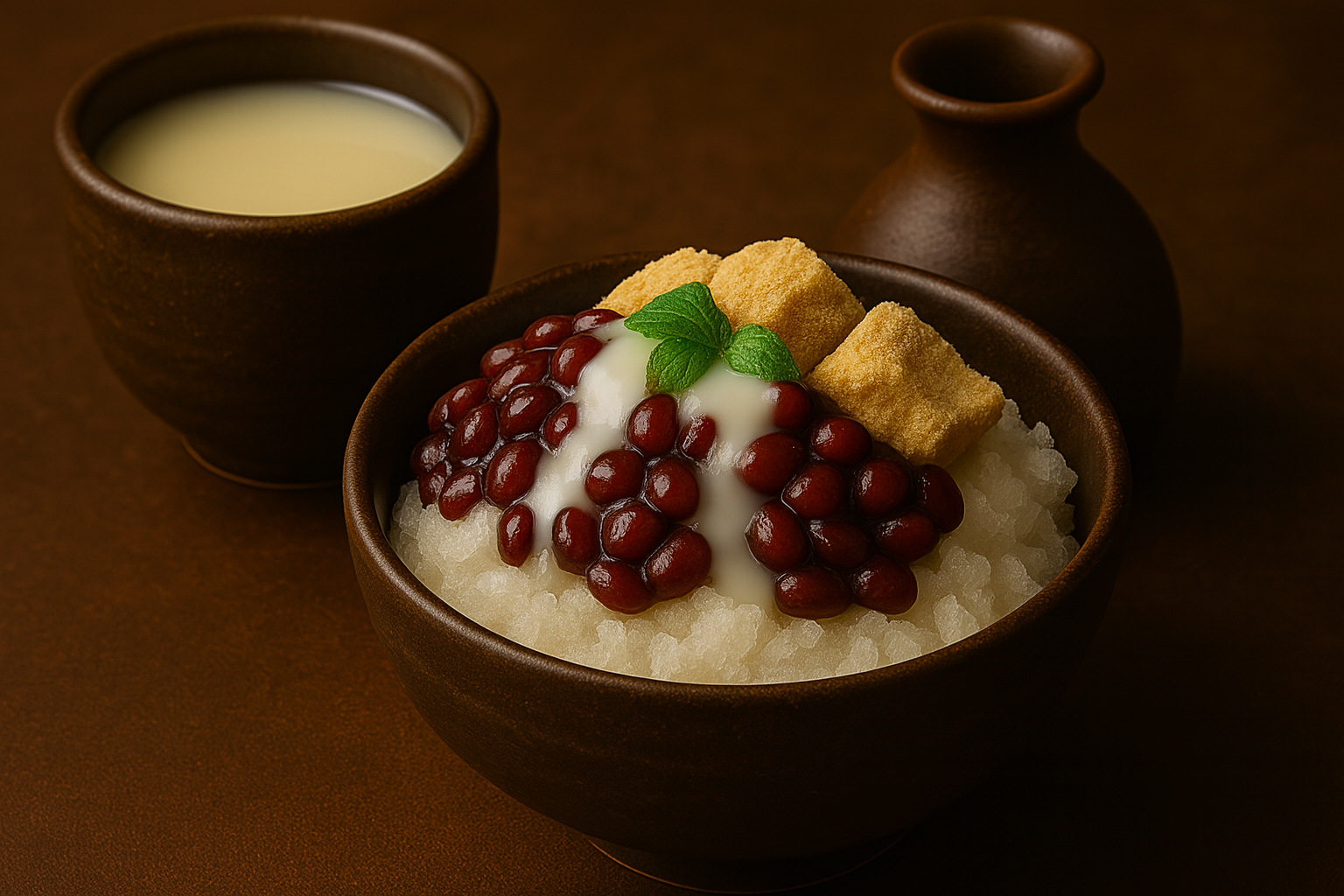Makgeolli (막걸리) is more than just a traditional Korean rice wine—it’s a living, breathing fermented ingredient packed with wild yeast, probiotics, and rustic flavor. While many enjoy it by the glass, fewer know it can be used to make delicious, creative recipes at home. From fluffy steamed breads to savory pairings, let’s explore how this centuries-old drink can transform your kitchen.

Part 1: What Is Makgeolli? Korea’s Rustic Rice Wine
Makgeolli is a milky-white, slightly sweet rice wine made by fermenting steamed rice with nuruk (a traditional fermentation starter). It contains natural yeast and lactic acid bacteria, making it rich in probiotics—great for gut health and digestion.
Traditionally enjoyed by farmers, this cloudy wine has become a hip beverage in modern Seoul. But beyond drinking, its active fermentation makes it a secret weapon in cooking.
Part 2: Makgeolli Steamed Bread (Soolbbang) Using Natural Fermentation
Makgeolli contains enough wild yeast to act as a natural leavening agent. That means you can skip commercial yeast and use it for bulk fermentation in steamed bread, known as “Soolbbang (술빵).”
Mix flour, sugar, and salt with Makgeolli. Let it rest in a warm space for 4-6 hours until the dough doubles in size. Pour into a mold or bowl, and steam for 30-40 minutes. The result? A softly tangy, bouncy bread rich in flavor and gut-friendly bacteria.
Use a traditional Korean earthenware bowl (ttukbaegi) or ceramic mold for added visual appeal.

Part 3: Makgeolli Bingsu — A Boozy Korean Ice Dessert
Looking for a refreshing way to enjoy Makgeolli in summer? Try Makgeolli Bingsu—a unique Korean shaved ice dessert made by freezing and crushing sweetened Makgeolli.
To make it, mix Makgeolli with condensed milk or honey and freeze it in a ziplock bag. Once semi-frozen, crush it with a spoon and layer it with ice cream, fruits, or sweet rice cakes.
The result is a creamy, mildly tangy dessert that’s cooling and lightly boozy—perfect for hot days. Just be mindful, the alcohol doesn’t disappear!

Bonus: Anju Pairing — Dishes That Go Perfectly With Makgeolli
While you wait for your Soolbbang to steam, whip up a quick Korean side dish, or anju, to pair with it. Here are a few classics:
- Pajeon (green onion pancake): Crispy, savory, and the ultimate Makgeolli companion
- Dubu Kimchi: Stir-fried aged kimchi served with tofu
- Ojingeochae Muchim: Spicy dried squid salad
These pairings balance Makgeolli’s creamy tang and enhance its rustic charm.

Health Benefits of Cooking with Makgeolli
Thanks to its natural fermentation, Makgeolli is rich in lactic acid bacteria, enzymes, and wild yeast. When used in cooking, it can improve gut health, add natural sourness, and enhance depth of flavor.
In steamed breads and marinades, it not only helps with digestion but also softens textures and deepens umami.
Get Creative and Cook with Makgeolli!
Makgeolli proves it’s more than just a drink. From naturally leavened breads to savory side pairings, try your own fermented creations at home and discover how this humble rice wine can elevate your everyday recipes.
'Korean Recipes' 카테고리의 다른 글
| Sulppang (Makgeolli Steamed Bread): Korean Rice Wine Bread Recipe (0) | 2025.07.04 |
|---|---|
| Makgeolli Bingsu: Korea’s Coolest Fermented Dessert (0) | 2025.07.03 |
| How to Brew Makgeolli at Home – Easy 4-Step Guide with NUTEAT Kit (0) | 2025.06.30 |
| Korean Party Food Ideas That Always Impress (0) | 2025.06.26 |
| How to Make Kimchi at Home (Even in a Small Kitchen!) (0) | 2025.06.24 |



